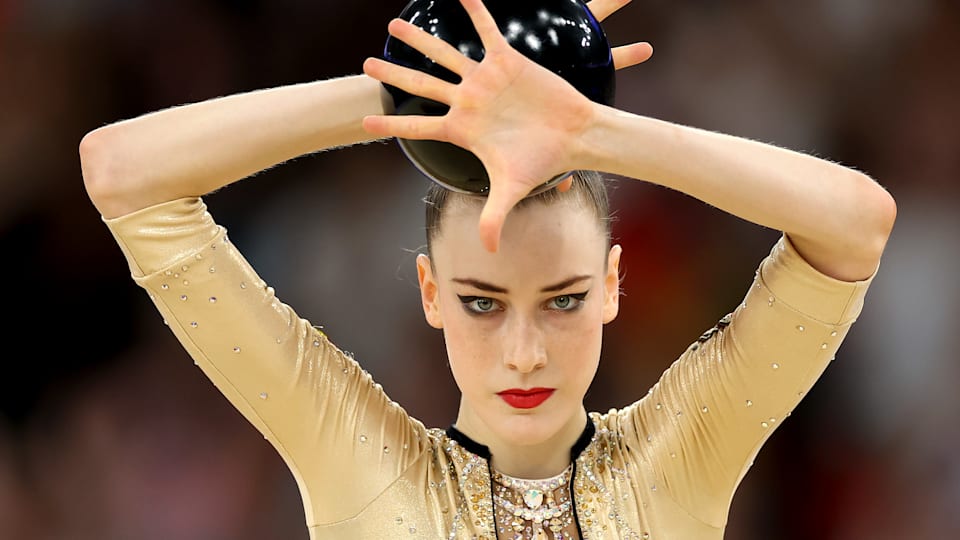Darja Varfolomeev and Germany's long road to rhythmic gymnastics glory

Good things come to those who wait.
That’s true in life, but especially sport.
At the Olympic Games Paris 2024, Germany had a breakthrough in rhythmic gymnastics, as Darja Varfolomeev soared to all-around gold Friday (9 August).
"It's amazing. I think I will only realise it all later. I can't express my emotions, I'm still focused," she told reporters afterward. "It's difficult to say something right now. I'm really happy and I'm still not really believing it. I'm also really happy that I was able to do four clean routines. That was really important for me. Now I've finished my competition with a gold. It's just unbelievable."
Bulgaria's Boryana Kaleyn was silver followed by Italian Sofia Raffaeli in third.
It’s part of a resurgence in the sport for the nation that has only claimed one medal in the sport, before reunification. Regina Weber took bronze in the inaugural contest at the ’84 Games in Los Angeles.
Varfolomeev and compatriot Margarita Kolosov, who finished just outside the medals in fourth, represent the first time Germany has had two women in the final since the 1988 Olympic Games in Seoul.
Kolosov's placement is the highest (other than Varfolomeev) since that bronze medal forty years ago.
“It took these nine years, maybe seven, until it started to work,” said German coach Yulia Raskina, a Sydney 2000 silver medallist for her native Belarus, the woman at the center of their remarkable return to the sport’s spotlight. “Everything takes time. In rhythmic gymnastics, especially, everything takes time, yeah? After ages, you see if you were right or if you were wrong.”
Raskina has lived in Germany since 2014.
A decade later, she’d brought two athletes – Varfolomeev and Kolosov – to Paris.
The rise of the program has not been easy, says Raskina.
“Of course, the system is very different from Belarus and Germany, and my times as a gymnast were much different than my times now as a coach,” she explained. “I had to accept many things, to change my opinion, my mind.
“Especially in Germany, we don’t have so much time. We cannot work unlimited [hours]. The girls go to school,” she continued. “Maybe, yes, I have now a system of how I work. I have a plan of how it’s supposed to be.”
Rapid Rise
Varfolomeev’s rise to gold in Paris has seemingly happened in a blink of an eye - going from relative unknown five years ago to Olympic champion today.
In reality, it’s been a long road, one full of sacrifices.
She left her native Russia at age 13, alone, to pursue her career in the sport. Varfolomoeev’s parents followed three years later.
At first, the result didn’t come. She finished 15th with clubs during qualifying at the 2019 Junior Rhythmic Gymnastics World Championships. It was the only event she performed at the competition.
But, suddenly, success was there, a fifth place finish at the 2022 Europeans led to a silver medal all-around at the senior worlds later that season.
“We were all a bit surprised,” admitted Raskina. “It was unexpected.”
Last season, she swept all five gold medals at the world championships.
“I was always feeling that we have to say, ‘World, we are in our place. She belongs on top,’” said Raskina. “I just tried [to make sure] that she’s strong, that she’s getting better as a gymnast, that she has class. For me, it’s very important that her skills are good, that she’s doing everything technically correct, that she can react fast.
“It’s just developing,” the coach continued. “You have a goal and you just try to work with her in the situation where you are.”
Friday in Paris, that was enough.
"For this medal, I've worked every day, nine hours [a day]," Varfolomeev said.